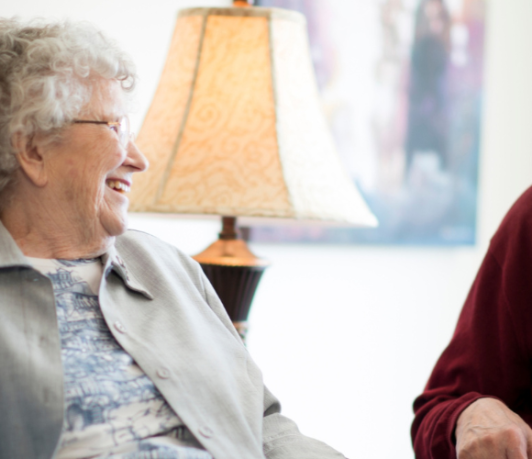How to Grieve and Find Comfort after Loss of a Loved One
Aged Care, Home Care |

Losing a loved one is an experience that can deeply impact our lives, leaving us feeling overwhelmed and unsure of how to grieve and find comfort after loss of a loved one. At Respect, we understand the profound effects of such a loss and strive to provide support and care for individuals and families during this challenging time. As an experienced aged care provider and home care service, we are here to guide you through the journey of grief, offering insights and practical advice to help you find comfort and healing.
In this blog post, we will explore the grieving process and provide valuable information on how to cope with the loss of a loved one. Whether you are seeking support for yourself or a family member who has experienced a significant loss, our aim is to offer guidance and resources to help you navigate this difficult time.
Additionally, for those considering engaging Respect for aged care or home care services, we will provide relevant information to help you make informed decisions.
Understanding the grieving process
Grief is a natural response to the death or loss of someone we hold dear. It is essential to acknowledge that everyone’s grief journey is unique, and there is no right or wrong way to grieve. The grieving process often involves a series of stages, including denial, anger, bargaining, depression, and acceptance.
However, it is important to note that these stages are not necessarily sequential, and individuals may experience them in different orders or skip some stages altogether.
Allowing yourself or your loved one to grieve at their own pace is crucial. Some people find comfort in openly sharing their feelings, while others may prefer to process their grief privately.
Coping with complicated grief, intense emotions and physical symptoms
Complicated grief is best described as being in an ongoing, heightened state of mourning that included intense feelings that keeps you from healing. Signs and symptoms can include intense sorrow and pain following your loved one’s death, which make it hard to focus on any other aspects of your life.
Complicated grief can bring about a range of intense emotions such as sadness, anger, guilt, and confusion. These emotions may manifest as physical symptoms, including fatigue, changes in appetite, or difficulty sleeping.
It is important to recognise and validate these emotions, as suppressing them can lead to unresolved grief and additional challenges in the future.
Seeking support
Seeking support from professionals specialising in bereavement counseling can be highly beneficial. Mental health professionals, such as a grief counselor, offer a safe space for you to express your emotions and work through the pain. They can provide guidance, tools, and techniques to navigate the complexities of grief, helping you gradually find healing and resilience.
Connecting with a bereavement support group
Participating in support groups can also play a significant role in the grieving process. For example, joining a bereavement support group allows you to connect with others who have experienced similar losses, fostering understanding and empathy.
Sharing your story and listening to others can provide comfort and reassurance that you are not alone in your grief. Respect provides resources to help you locate local support groups or access online communities tailored to your needs.
Finding comfort in memories and spirituality
Grief is a testament to the love and connection shared with your loved one. Embracing memories and cherishing the moments spent together can bring comfort and healing amidst loss.
Creating a tribute or memorial for your loved one can be a meaningful way to honour their memory. For example, planting a tree, compiling a photo album, or writing a letter expressing your feelings can serve as reminders of the love and impact your loved one had on your life.
For those with spiritual or religious beliefs, drawing upon them can offer solace during difficult times. Engaging in practices such as prayer, meditation, or attending religious services can provide a sense of comfort and help you find meaning in your loss.
Through our support, including home care, Respect recognises and respects the diverse spiritual beliefs and practices of individuals, ensuring our care services accommodate and honour these beliefs.
Maintaining connections and seeking support from a mental health professional
During the grieving process, it can be challenging to navigate everyday life while dealing with intense emotions. It is important to reach out to your support system, whether it be family, friends, or community groups, as they can provide invaluable support during this difficult time. Simply talking about your feelings and memories can be cathartic and comforting.
Don’t hesitate to lean on those around you who are willing to listen and offer a helping hand.
Respect offers various support services, including home care and aged care, designed to provide assistance and care for individuals who have experienced the loss of a loved one. Our compassionate caregivers not only provide practical help with daily tasks but also offer emotional support and companionship, ensuring that you or your loved one feels supported and understood.
Taking care of your physical and mental wellbeing is crucial when coping with grief. Engaging in physical activity, such as walking or gentle exercises, can help alleviate stress and release endorphins, which can boost your mood.
Additionally, ensuring you get enough sleep, eating nutritious meals, and practicing self-care activities that bring you joy can contribute to overall wellbeing.
If you find yourself struggling with intense grief, depression, or unresolved feelings for an extended period, it may be beneficial to seek professional help. Grief counselors, therapists, or mental health professionals can provide specialised guidance and support tailored to your specific needs.
Respect can assist you in finding qualified professionals or reputable counseling services to help you navigate through this challenging phase.
Moving forward with resilience
Grief is a deeply personal journey that does not have a set timeline. It is not something that can be entirely overcome or forgotten, but with time, support, and self-care, it is possible to find comfort and healing.
It is essential to remember that healing does not mean forgetting or replacing your loved one, but rather finding a way to integrate their memory into your life as you move forward.
As you progress through the grieving process, you will begin to develop resilience and acceptance. The intense pain will gradually subside, and you will find yourself able to function and experience joy again. Embracing the good memories and celebrating the life you shared with your loved one can bring solace and peace.
At Respect, we understand the complexities of grief and the unique needs of individuals who have experienced a significant loss. Our aged care and home care services are designed to support you on the journey to healing and finding comfort.
We provide compassionate care and personalised support, always ensuring that your physical, emotional, and spiritual well-being are prioritised.
In summary
Losing a loved one is a deeply challenging experience that can turn your world upside down. Yet, by seeking support, understanding the grieving process, and allowing yourself to heal at your own pace, you can gradually find comfort and resilience.
Respect is here to support you through this journey, offering not only aged care and home care services but also guidance and resources to help you navigate the complexities of grief.
Remember that grief is a natural response to loss, and it is okay to lean on others for support. With time, self-care, and the support of your community, you can find solace and healing while honoring the memory of your loved one.
Here to support you
At Respect, we’re passionate about supporting older Australians to ensure the next phase of their lives are filled with purpose and possibilities.
Whether it’s through our network or aged care homes or our home care support options, we are here for you and your family whenever you need us. Your future should shine with meaning, comfort and conveniences — and with our support, you’re backed by over a century of care and consideration for the way you want to live.
We’re here to help! To find out more about Respect’s Aged Care homes, click here. For more information about how to access a Home Care Package and get started with home care support, including the available opportunities and our range of services, download our digital brochure. Got questions or like to receive more support? We’re here to help. Please reach us via our contact page or call us on 1300 144 144.
Interested to learn more about our services?
Simply fill in the below form and one of our expert Advisors will give you a call within 48 hours to discuss your options.




